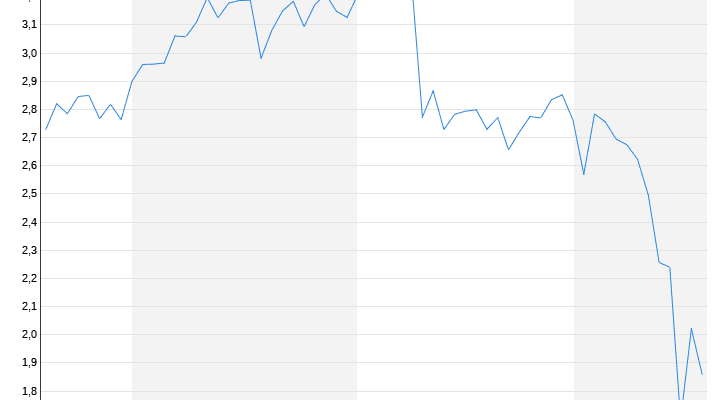The bigger, the more dangerous
Switzerland creates a banking Goliath
A comment by Jan Ganger
03/20/2023 11:44 am
The major Swiss bank UBS rescues its badly battered rival Credit Suisse. UBS speaks of a “huge opportunity”. But the deal also poses a huge risk.
It’s bad not to learn from mistakes. And it’s especially bad when the mistakes are related to the global financial crisis. In Switzerland, the reeling bank Credit Suisse and its larger competitor UBS are being forced into marriage. That’s very risky. Or as the Swiss newspaper “NZZ” aptly puts it: a zombie is gone, a monster is born.
A banking giant is being created in Switzerland, whose balance sheet total is almost twice as large as the country’s economic output. The most important lesson learned from the financial crisis of 2007/2008 was that banks must be prevented from being “too big to fail” – that is, too big to allow them to go bankrupt without endangering the financial system. This was not successful, as the example of Credit Suisse impressively shows.
Not strokes of fate, but years of mismanagement and a lot of scandals ruined the bank. Bankers and their controllers have failed. In recent months, customers have turned their backs on the bank in droves and taken their money with them. The share price plummeted. The inglorious end of the second largest Swiss bank was therefore not surprising.
In order for the market economy and capitalism to function, one essential requirement must be met: Entrepreneurial misjudgments must have consequences. If the management fails or the business model doesn’t work, a company must be able to go under. If you take too many risks, you have to bear the consequences.
This is not the case with large banks. Since a bankruptcy can shake the global financial system, they rely on the state to bail them out with taxpayers’ money if necessary. This systemic relevance is not necessarily interpreted as a special responsibility, but as a free ticket.
Billion dollar rescue
Credit Suisse has lost billions in investment banking. She is said to have accepted corrupt autocrats and criminals as clients for years. In addition, there is the Spygate farce, in which a frustrated star investment banker was shadowed, allegations of money laundering, the fiasco of the bankruptcy of a British financial company or the debacle with so-called tuna bonds. Credit Suisse has certainly worked to go under.
But due to their size and interconnectedness in the global financial system, the Swiss government and central bank find it far too risky to drop them. UBS steps in as a savior, paying at least three billion francs for the problem competitor and is responsible for losses of up to five billion francs. The Swiss National Bank grants the banks a loan of up to CHF 100 billion. And the government also gives UBS a guarantee of nine billion francs.
Against the background of Credit Suisse and the problems of US regional banks, there is an urgent need for action in the European Union. Commercial banking and investment banking must be separated. The banking union must be deepened to make it easier to resolve banks. A European deposit insurance scheme is needed. Larger capital buffers are also needed.
Otherwise, the next problem with banks in the EU could soon not be that they are “too big to fail” but “too big to save”.
